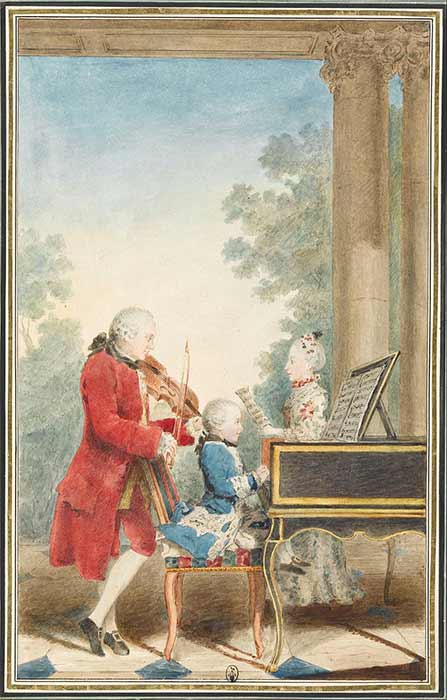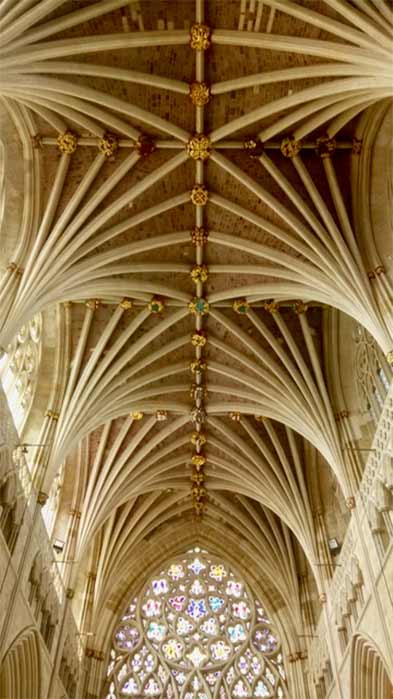It is an astonishing fact that, from the end of the so-called ‘Dark Ages’ and the settlement of Europe, a massive building program took place that was to transform Europe in a hitherto unsuspected way. Shortly after the construction of the Gothic (1130’s AD – 1480’s AD) came to its inevitable conclusion there seems to have been a sudden surge of intellectual and spiritual awareness throughout the coalescing European nation states, one that led to the Enlightenment and to the Age of Reason. The building of the Gothic cathedrals on such a massive and widespread scale is still an economic mystery: How was it achieved, how was it funded and how was the actual construction achieved with such extraordinary impact from seemingly out of nothing? How did it, quite literally, alter human society?

The Mozart family on tour: Leopold, Wolfgang, and Nannerl by Carmontelle (c. 1763) ( Public Domain )
The answer is a hitherto unsuspected one: For these extraordinary sacred spaces altered humankind’s mind, they transformed consciousness and this, in turn, led to a renewed energy the like of which Europe has not seen in the centuries since. The only other comparison that might be made, is in the rise of the great Egyptian pyramids, and there is an amazing, but intimate link, one confirmed by rigorous scientific analyses at these sites. The phenomenon, is sound in the form of resonance, the effect is a subtle one, but nonetheless sublime. Man’s ability to record these things is the outcome of the whole.

Interior of Exeter Cathedral (Image: Courtesy David Elkington)
Resonating Sound In Script
The thesis is this: human beings, it seems, have a natural urge towards spirituality and the need to grow inward and towards it as an expression of wisdom. Humans have a need to know where they came from and why: this is curious – for the word ‘religion’ means ‘to bind back’ (to the source). Could it be that religion is, in effect, an ancient language of scientific expression? What if a thing that is taken for granted – so much so, that it is rarely given a second thought – was not a human invention at all, but a response by humans to their environment, a response inbuilt into the human brain? The reference, of course, is to writing – to script.
Like this Preview and want to read on? You can! JOIN US THERE ( with easy, instant access ) and see what you’re missing!! All Premium articles are available in full, with immediate access.
For the price of a cup of coffee, you get this and all the other great benefits at Ancient Origins Premium. And – each time you support AO Premium, you support independent thought and writing.
David Elkington is an independent academic and historian, specializing in Egyptology and Egypto-Palestinian links. He has lectured at Oxford and Cambridge Universities and appeared on many television programs, including Forbidden History. He lives in The Hague, Netherlands. He is the author of The Ancient Language of Sacred Sound
Top Image : Notturno di Piazza del Duomo a Milano by Angelo Inganni (before 1866) ( Public Domain )
Related posts:
Views: 0
 RSS Feed
RSS Feed

















 May 15th, 2021
May 15th, 2021  Awake Goy
Awake Goy  Posted in
Posted in  Tags:
Tags: 
















